#albumreviews
Text
‘This is Why’
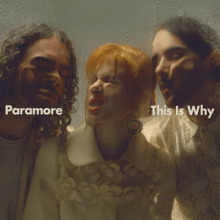
Paramore’s newest release This Is Why, might just be the best Paramore album to date. Don’t get me wrong – I love their old, emo music. Like many little emo children back in the 2000’s, Paramore dominated much of my listening; from the second I heard Misery Business, I was hooked. Being the type of person who is incredibly resistant to change, I personally did not find their Paramore album much to my taste – for me, I felt it strayed too far from the Paramore I knew and loved. It didn’t stop me from listening to After Laughter of course, but again, I just did not see Paramore in the songs. To me, those two albums are almost a crossroad for the band – they were exploring and trying to re-invent and find themselves as a band after so much conflict between the members. Some wonderful songs from these albums still – Part II, (One of Those) Crazy Girls; Pool and Idle Worship to name my favourites – but as an overall, to me, it just wasn’t what I saw Paramore to be.
Hayley’s self-titled album, on the other hand, was truly a masterpiece. Petals for Armour was what I listened to on repeat in the first covid-19 lockdown – her pain and anger, brought out so beautifully with her magnificent vocals, truly showcased an unmatched talent. Sudden Desire, Roses/Lotus/Violet/Iris, and Crystal Clear, display her vocal range and musical abilities to their highest form. Petals for Armour was such a step away from Paramore, and especially the Paramore I was used to – leading to a wondering of what this meant for the band’s future.
Their first single since After Laughter, This is Why, again took a step in another direction. You can see the elements of Paramore and After Laughter within the song, yet still brings a completely new era into the equation. I wasn’t sure what to expect with the album – with the accompanying singles of The News and C’est Comme Ça, I was expecting a newer, improved era of their 2013 and 2017 albums. What has been produced, however, is something entirely different. This is Why, is that perfect blend of Hayley’s solo projects, and Paramore as a band – Figure 8, especially, for me, is the perfect example of such. The lyrics, raw, emotional vocals and the accompanying music mesh perfectly, combining Hayley’s solo work exploration, and Paramore’s new era.
I saw a tweet (@tinyhottopicbish) upon release date, suggesting listening to Pool, Crystal Clear and Liar in a sequence. The way the songs flow into each other, across the span of three sperate albums, made me second guess my initial reactions to Paramore and After Laughter. It is almost as if a plan was truly made – perhaps this was always the route Paramore was to go. I’ll re-iterate that I am not a fan of change – when My Chemical Romance’s Danger Days album was released, I was almost hurt by the drastic change in their tone and mood. Paramore's 2013 album brought about the same reaction. But we all must grow up and mature at some point, and Paramore’s evolution is clearly one for the better. This is Why, is a wonderful example of such maturity: it is different but holds elements of their roots still at heart. It has made me re-think my emotions on their 2013 and 2017 albums, and although they will never be my favourite of their six albums, This is Why may have overtaken Brand New Eyes, and I am so excited to see what the future holds for Paramore.
#paramore#paramorealbum#thisiswhy#thisiswhyalbum#newmusic#newmusicreviews#musicreviews#album#albumreviews#music#indierock#2023#2023music#newalbum#newparamore
5 notes
·
View notes
Video
youtube
25 SIXTH CLASSIC ROCK ALBUMS RANKED WORST TO BEST
#youtube#classicrock#ranked#ranking#paulmccartney#sparks#blacksabbath#ledzeppelin#blueoystercult#themoodyblues#nektar#albumreviews
0 notes
Text
Def Leppard’s Vault: Greatest Hits (1980-1995) (Album Reviews) (Reviews)
I have been a fan of Def Leppard since the age of 14 and it’s been one of the albums that I have been mostly listening too. You might disagree if you’re not into rock; I assure you that listening to this album would make you agree to rock.
It’s not always shouting, in this case, Def Leppard introduce another way to get bromance through lyrics which are easy on the ears and makes you want to sing along, even if you’re not up for it.
I like the music on this album as it makes me happy and is a great experience if you want to get into rock music.
I got interested in this wonderful Sheffield British Hard Rock band and I’m sure that you would too.
“Vault” says everything about me and my personality and is the main reason for why I wanted to do this review. I like this band and it’s the reason for why I got into listening to rock music.
#warrenwoodhouse#albumreviews#album review#album reviews#reviews#review#.review#def leppard#2014#musicblog
0 notes
Text
The 10 Best Rap Albums of All Time: A Must-Listen Guide
Are you ready to dive into the world of rap music? Whether you’re a die-hard fan or new to the genre, this must-listen guide will take you on a journey through the 10 best rap albums of all time. From the iconic lyrics of Tupac Shakur to the groundbreaking production of Kanye West, these albums have shaped the landscape of hip-hop and left an indelible mark on music history.
Discover the raw…

View On WordPress
#AlbumReviews#BestRapAlbums#HipHopCulture#MusicGuide#MusicRecommendations#RapHistory#RapJourney#RapLegends#RapMusic#Top10RapAlbums
0 notes
Text
youtube
The latest Amari Music Talk takes a look at this game changing album by Tony Toni Tone’, the 1993 album Sons of Soul! Like and subscribe!
1 note
·
View note
Text
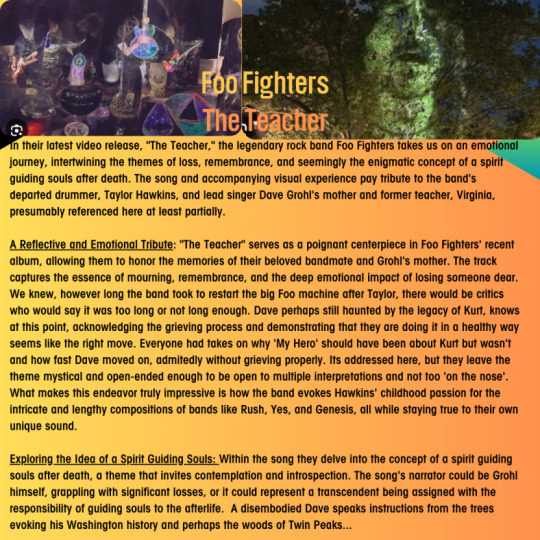

Early review of Foo Fighter's new "The Teacher"
1 note
·
View note
Text
SZA'a don't call me is giving Summer in the Winter

From the head nodding beat, to the bossy lyrics... SZA's don't call me is a far cry from where she started as a Somber writer trying to get an ex to understand she needs too much attention, and she could be his supermodel if he just believes. This melodic number on her newest album doesn't need a man to do anything but what she says. If you're use to the poetic SZA who bares her soul while at the same time writing her wrongs along with all of her exes wrongs too... then don't listen to this one. But if you're feeling bossy enough to talk smack whilst smacking on bubble gum the same color as your platform heels, this is the song for you. I will say... it seems SZA has decided to leap out of the box musically... Catering to her culture while at the same time making every ex she ever wrote to on her CNTRL album her muse just enough to boss up, stand up, and pull out that confidence. Listen to it, just don't pull up on one of your exes after. lol
I think all SZA fans are in awe, looking forward to more of SZA's twists and changes musically. We'll see where 2023 takes miss thing lyrically. I wonder if her will to change it up and make bossy music, will in turn pull out deeper, melodic, poetic lyrics in the future. Because change is change right? Deeper than Drew Barrymore, deeper than Supermodel... only time will tell.
0 notes
Photo
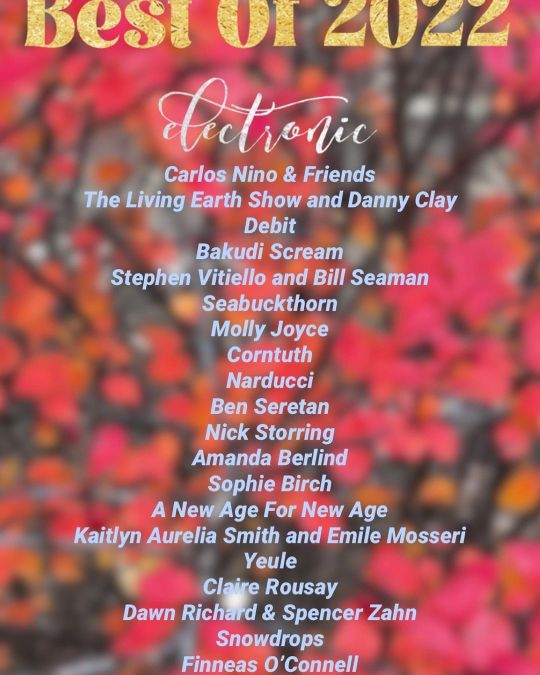
Next up in my #bestof2022 series is a look at electronic sounds. Features questing soundscapes from the likes of Carlos Nino & Friends, @livingearthshow and @dannyclay, @deliabeat, @bakudi_scream, @stephenvitiello & @bill.seaman, @andycartwright_, @molly.joyce, @corntuthmusic, @_narducci_, @benseretan, @nickstorring, @amanda.berlind, Sophie Birch, @anewagefornewage, @kaitlynaurelia and @emilemosseri, @yeule, @clairerousay, @dawnrichard & @spencerzahn, @snowdropsmusic, and @finneas. Find your sonic escape at the #linkinbio! #electronicmusic #albumreview #albumreviews https://www.instagram.com/p/CnQeylTLKNR/?igshid=NGJjMDIxMWI=
0 notes
Photo

One down still so much to expect and also wanna apologize for future inactivity cause I'm not feeling too well and need to rest. Anyways go listen to never giving up when it drops tomorrow in few hours I love y'all link in bio #albumreviews #albumreview #albummode #newalbumsoon #newmusicalert🚨 #musicsunday #rapperofinstagram #hiphopweekly #hiphopstyle #alternativemusic #nevergiveup💪 #newtracks #whoisyou #soundcloudmusic #newprojectcomingsoon #alwaysworking #newfeatures #newrappers #unsignedrapper #undergroudrapper #unsignedhype https://www.instagram.com/p/Cjd05mjsz8s/?igshid=NGJjMDIxMWI=
#albumreviews#albumreview#albummode#newalbumsoon#newmusicalert🚨#musicsunday#rapperofinstagram#hiphopweekly#hiphopstyle#alternativemusic#nevergiveup💪#newtracks#whoisyou#soundcloudmusic#newprojectcomingsoon#alwaysworking#newfeatures#newrappers#unsignedrapper#undergroudrapper#unsignedhype
0 notes
Photo

Chris from The Daily Vault reviews Tropical Depression by Sergio Michel. Features with Kate Bush's classic, Red Shoes, check it out! http://www.dailyvault.com/toc.php5?review=10993 . . . #tropicaldepression #tropicaldepressiontour #tropd #sergiomichel #katebush #katebushfan #rock #metal #hardrock #guitar #albumreview #albumreviews #albumreviewsmetal #strangerthings #netflix https://www.instagram.com/p/CikjsLMph6L/?igshid=NGJjMDIxMWI=
#tropicaldepression#tropicaldepressiontour#tropd#sergiomichel#katebush#katebushfan#rock#metal#hardrock#guitar#albumreview#albumreviews#albumreviewsmetal#strangerthings#netflix
0 notes
Photo

The SQUUUUUUUAD! 🎙🎙🎙🎙🎙 #TheLinerNotes #TheLinerNotesPodcast #HipHopPodcast #AlbumReviews #Discussion #Debate #ForTheCulture #Metrics #Lyrics #Production #Concept #Impact #Replayabilty #Season2 https://www.instagram.com/p/CfuZwbCuAve/?igshid=NGJjMDIxMWI=
#thelinernotes#thelinernotespodcast#hiphoppodcast#albumreviews#discussion#debate#fortheculture#metrics#lyrics#production#concept#impact#replayabilty#season2
0 notes
Text
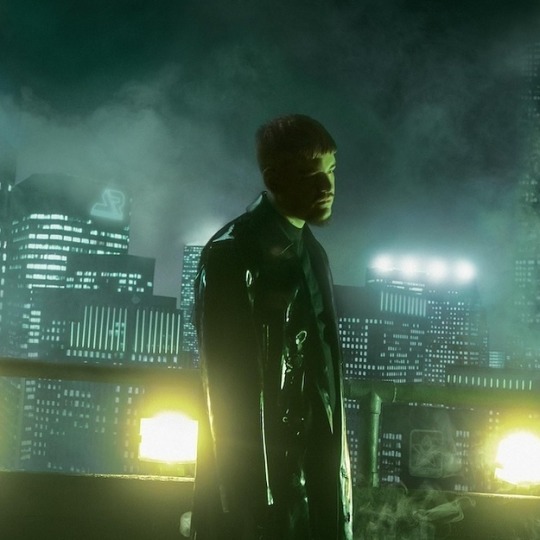
2/20/24
Yeat
2093
====
This is my first time listening to Yeat at length. I've come to the realization that I don't need 22 tracks from artists like this anymore. He seems to use the same exact flows as Travis Scott, without the same level of entertainment value, maintaining a monotone voice throughout every single track.
Upon reviewing the credits, I noticed numerous writers listed for each track, as well as various 'TikTok Producers', which initially surprised me. It appears that we're witnessing the full evolution of Soundcloud rap into TikTok rap, with the first successful artists garnering substantial industry hype and financial backing. This is likely how Yeat managed to feature Future on the track 'Stand On It', which falls flat.
There's undoubtedly a place for this type of music, and Yeat appears to be leading the charge in the zone of TikTok rap. However, the repetitive and uninspired lyrics fail to drive the overall industry forward. By the end of this album, I find myself thoroughly exhausted. Thankfully, it's finally over.
5/10
#5bones#yeat#2093#tictok#album#spotify#albumreview#musicdiscovery#album review#albumoftheday#nowplaying#now listening#Music Review#Music Recommendation
69 notes
·
View notes
Video
youtube
12 RANDOM ALBUM RANKINGS AND REVIEWS FROM MY CD COLLECTION
#youtube#cdcollection#albumreviews#ranked#ranking#paulmccartney#thebeachboys#sparks#stevenwilson#music#classicrock#Genesis#hawkwind
0 notes
Text
Butthole Surfers — Rembrandt Pussyhorse (Matador)
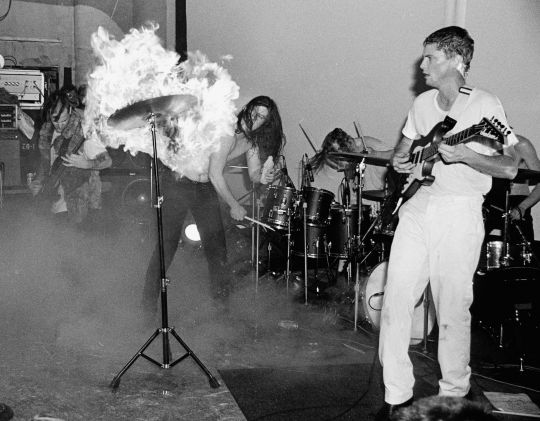
Photo by Jerry Milton
Given the amount of ink spilled and pixels configured concerning the music and cultural phenomena associated with the Butthole Surfers, it seems a daunting task to find anything new to say about the band — even about a record as excellent as Rembrandt Pussyhorse, first released 38 years ago (say what) on Touch and Go and presently being given the vinyl reissue treatment by Matador. But two things obviate the perceived difficulty registered just above: somehow, someway, Rembrandt Pussyhorse sounds like it could have come out yesterday on some currently über-hip, punk-adjacent underground label (say, Feel It Records from Cincinnati, or London’s La Vida Es un Mus); and for certain, it feels a very particular, vividly upsetting sort of way to listen to these demented, raging and inspired songs in March of 2024, as we struggle and lurch our way toward spring.
For example: Give “Strangers Die Everyday” a spin and try not to think about Gaza. That shouldn’t be a compelling match, of past music with present, all-too-real event. The song features a nigh-histrionic, Bela-Lugosi-as-the-Count organ, plastic fangs chewing on cheap, drywall scenery. Gibby Haynes does some of his bullhorn-mediated vocal antics, and sounds of bad plumbing bubble up into the mix. It’s the Butts in nightmare mode, which was always a vertiginous blend of ruthless ugliness and brain-rattled hilarity, and there is nothing funny about Gaza. Nothing at all. But keep listening. “Strangers Die Everyday” ends up expressing a deranged pathos. The organ is hammy, but the melody is mournful. The glurping, glooping bubbling evokes looking down a mostly stopped-up drain, which is always a bum-out experience, woven into the textures of the “Everyday” world nodded to in the song’s title. It situates the sadness and disgust in a feeling tone. But just exactly where is your everyday world? If you can tune in and make an additional metaphorical leap (to all the drains in Gaza, and in Myanmar, and in Ethiopia, and elsewhere, all of them backed up and drowned by unstanched cataracts of blood, from the bodies of all of those strangers), you will feel a particular sort of weight in your gut.
The Butts’ best stuff always worked the spaces in which earnestness, nausea and a decidedly bonkers mirthfulness overlap. Perhaps “collide” is a better word for the music’s resulting dynamic. In their early recordings, you can hear them bashing and stumbling their way toward ever-more-effective smash-ups of sharply opposing affects: the delirious one-two punch of “Suicide” and “The Revenge of Anus Presley” from Butthole Surfers (1983); the ebullient, anxious, headlong hallucination that is “Dum Dum” from …Another Man’s Sac (1984). The best performance of that sort of collision on Rembrandt Pussyhorse is “Perry,” which initially registers as a hyperbolic parody of the theme music to Perry Mason. Natch, let the laffs commence. The organ is back, but this time it’s in full Phantom-of-the-Opera mode, rollicking and tempestuous, Lon Chaney grinning horribly. Haynes delivers the laffs, howling and whooping himself breathless.
Keep listening. “Perry” takes its turn toward something more than parodic goofiness when Haynes provides a series of anaphoric itineraries: “It’s about coming of age / It’s about learning how to do it / It’s about learning how to experience things the way they ought to be experienced….” And so on. It’s a reckless thing, following Haynes into that improvisatory philosophical space: How, precisely, should things be experienced? What would a Butthole Surfer say? “It’s talking about being the slave boy / It’s talking about giving head when you’re 6 years old / It’s talking about enjoying these things….” You can just about see Raymond Burr blanch, even in black and white — and sure, it’s the Butts being the Butts, invoking a series of transgressive, taboo images, perhaps only for the charge of the transgression itself.
But there are other ways to hear the transgression. We might take the reference to Perry Mason a little more seriously. In the summer of 1986, just months after Rembrandt Pussyhorse was released, the Meese Commission on Pornography published its final report, a Puritanical screed that sought to throw the full moral weight of the Justice Department (yeah, yeah, I know) behind a juridical condemnation and potential outlawing of sex work, porn consumption and kink. The most liberal — in the hard sense of that word — readings of the Report’s recommendations would likely sanction tossing a band called the Butthole Surfers and songs like “Perry” (and “Lady Sniff,” “The Shah Sleeps in Lee Harvey’s Grave,” “Moving to Florida,” and later just about every song on Locust Abortion Technician and Hairway to Steven…) onto the pile with all the copies of Hustler and Torso and the endless numbers of VCAvideocassettes — not to mention the models and actors themselves, and all the folks who watched them and looked at them and felt pleasure.
It's not a hard history to uncover when you listen closely. Reagan’s reinvigoration of the American Right in part drew upon Jerry Falwell’s political turn, and the idea that evangelicals could have real power if they participated in the electorate, rather than regarding it as the fallen domain of a lesser law. In 2024, the Republican Party takes that evangelical vote for granted, and its full complicity with the array of MAGA-affiliated constituencies has created a new set of political alliances, issuing in events like January 6 and the Q Shaman leading a prayer service in the evacuated Senate chamber. Not sure even Haynes could conjure that image. Return to the record. The echoes of Raymond Burr’s voice, in full closing-statement declamation, reverberate out from “Perry” to the Butts’ magisterial cover of “American Woman”: “All right, you little creep, come out of there! We know your name!” We’ve got you surrounded! Where’s Mike Pence?
No one would argue that the Butts possessed anything like socio-political prescience when they recorded Rembrandt Pussyhorse. They were too busy experiencing things the way they had to experience them, to make the music that they had to make. And some of us enjoyed it. Still do. That may be reason enough to return to the record — or to reissue it. But the band somehow tapped into some very serious energies circulating in the mid-1980s: the Reagan Administration’s bloody-minded Christian nationalism (read some of his speeches, you’ll hear it); the Israeli Labor Party’s “Iron Fist” policy of 1985 and the accompanying intensification of settler activity, all of which would soon lead to the First Intifada. And here we are: Gaza on fire and self-identified Christian Nationalists like MTG and Tommy Tuberville setting policy. Here we are, in the “Whirling Hall of Knives” Haynes and Paul Leary and the rest of the band set in motion in 1986. Even today, especially today, it cuts deep. It draws blood. Strangers die everyday.
Jonathan Shaw
28 notes
·
View notes
Text
"Some Great Reward": Depeche Mode's Synth-Pop Evolution

British band Depeche Mode’s fourth studio album Some Great Reward released in 1984 was a turning point in the band’s sound that resulted in their first US chart success, with their single “People are People” reaching no. 13 on the Billboard Hot 100 chart.
Some Great Reward was a transitional phase for Depeche Mode, where the aspects that would come to define Depeche Mode’s signature sound in the years to come were starting to develop. Songwriter Martin Gore was coming into his own, with his lyrics reflecting relationships and the human condition, grappling with skepticism of religion, sex, politics, and love, from the perspective of an intelligent and cynical soul. Gore’s lyrics exhibit a depth often overlooked in music; notably, as they avoid common love tropes and present a more honest and realistic portrayal of relationships
Often the band’s earlier lyrics were backed by a more pop-style arrangement, Some Great Reward still contains those pop hooks and arrangements, but they are created to be in a more foreboding style. The album’s instrumentation sounds like they clash at first listen, but with further listening, this combination of thought-provoking lyrics and the industrial, loud dynamic music, sometimes coupled with soft and sweet sounding instrumentation, are done masterfully, where these seemingly contrasting ideas come together seamlessly. Depeche Mode became more playful and musically innovative with Some Great Reward, testing the boundaries of sound and the machinery of electronic instrumentation, redefining the genre of synth-pop in the process, into something more industrialized and tinged with subtle elements of darkness in the album's atmosphere.
Some Great Reward, saw Depeche Mode stepping out of the youthful, more energetic, and brighter synth-pop sound of their first couple of albums, signaling the member's maturation into being young adults and grappling with different complexities. One of the most prominent examples of this is the song “Master and Servant,” taking the theme of capitalism in society and subtly revealing this from within the song's lyrical themes of sex and BDSM, bringing the first musical taste of the new turn Depeche Mode was taking, a turn to something more earnest, more sexual, and more darkly cynical.
The lyrics explore the interplay between control and submission, drawing parallels between intimate desires and the broader societal structures influenced by power imbalances. The provocative nature of "Master and Servant" extends beyond its lyrics, with the music itself contributing to the song's edginess. The juxtaposition of alluring melodies with darker, more industrial elements exemplifies Depeche Mode's willingness to challenge musical conventions, foreshadowing the innovative approach they would further develop in subsequent albums.
The synth-pop-filled, often naive lyricism that defined their earlier albums is still subtly present but now takes on a more nuanced and complex role, with it being a backdrop to the band's lyrical exploration of power dynamics and societal structures.
Gore’s lyrics explore complex and provocative themes, such as on some of the album's standout tracks, "Blasphemous Rumours," "Stories of Old," and "Lie to Me," that delve into poignant narratives that contribute significantly to the album's emotional impact. In "Blasphemous Rumours," the lyrics address the weighty subject of suicide, offering a stark commentary on the struggles of individuals and the moral implications surrounding life and death. The combination of dark lyrical content against the backdrop of an upbeat musical arrangement creates a haunting contrast, enhancing the emotional impact of the song, and aligns with the album's broader examination of societal and personal challenges.
"Stories of Old" introduces a different facet of Depeche Mode's lyrical prowess, with its delving into themes of desire, intimacy, and vulnerability. The lyrics paint a vivid picture of romantic entanglements, showcasing Martin Gore's ability to convey complex emotions through evocative storytelling. As the track unfolds, the listener is immersed in a narrative of passion and longing, adding a layer of intimacy to the album's overarching exploration of human relationships. Similarly, "Lie to Me" explores the dynamics of deceit and self-deception within relationships, the lyrics are filled with longing and vulnerability, and contribute to the emotional depth of the album, as the music skillfully weaves a narrative that complements the broader themes of love, power, and societal critiques found throughout Some Great Reward.
Instrumentation on the album also marks a notable departure from the band's earlier sound, with the incorporation of newer band member Alan Wilder into Depeche Mode’s lineup bringing a fresh perspective, that is evident in the meticulous layering of synthesizers, drum machines, and the albums innovative use of samplers. The sonic landscape becomes more textured and sophisticated, with Wilder's influence pushing the boundaries of the electronic sounds in the album. This departure is particularly noticeable in tracks like "Somebody," where the subtle interplay between instrumentation and emotive vocals reflects a newfound depth and complexity.
The album heavily relies on synthesizers and drum machines, complemented by inventive samplers that capture sounds from everyday life, such as pans falling down stairs and working it into the album's soundscape. Some Great Reward’s unconventional use of sampling provides an intriguing layer of complexity with the album’s attention to detail in the sampling process, adding depth with the transformation of seemingly mundane sounds into integral components of the album's sonic identity.
Each track on the album has a disjunct yet harmonious sonic landscape, where the separation of vocal and instrumental layers is remarkably clear, allowing listeners to distinguish each element while still experiencing the cohesive flow of the music, resulting in an exhilarating listening experience that showcases Wilder's mastery in blending technical precision with artistic creativity.
The album's contrast of dark lyrical content against upbeat musical arrangements, along with the evocative storytelling, enriches the album's overarching story of societal challenges, human relationships, and personal struggles. Some Great Reward not only solidified Depeche Mode's position as pioneers of synth-pop but also laid the groundwork for their continued exploration of mature, provocative, and innovative musical expressions in the years to come.
#writer#writers on tumblr#writerscommunity#music#depechemode#somegreatreward#alan wilder#davegahan#martingore#andy fletcher#writerslife#writerthings#journalism#journalist#musicrecs#album#albums#review#musicreview#albumreview#musicblog#blog#music recommendation#Spotify
9 notes
·
View notes
Photo

The latest CD vs Vinyl on Patreon! My favorite album by my favorite band! WhatTime Is It? Become a supporter and be the first to view this episode and get exclusives in upcoming videos and perks! CD vs Vinyl - What Time Is It? (The Time) https://www.patreon.com/posts/77033421?utm_campaign=postshare_creator #thetime #morrisday #morrisdayandthetime #whattimeisit #album #prince #cd #vinyl #patreon #albumreviews #share #amaripurpletalk #reactionvideo https://www.instagram.com/p/CnPQpTlu39l/?igshid=NGJjMDIxMWI=
#thetime#morrisday#morrisdayandthetime#whattimeisit#album#prince#cd#vinyl#patreon#albumreviews#share#amaripurpletalk#reactionvideo
0 notes